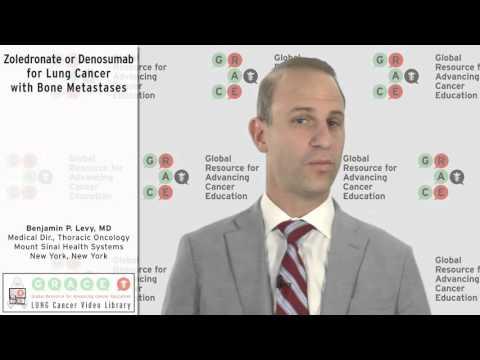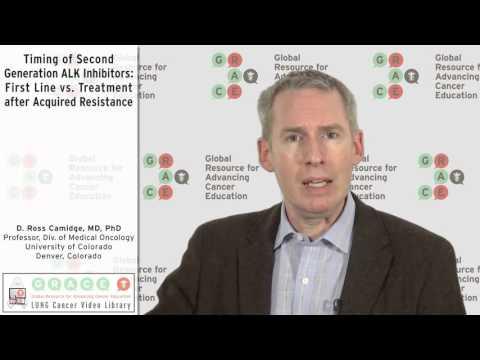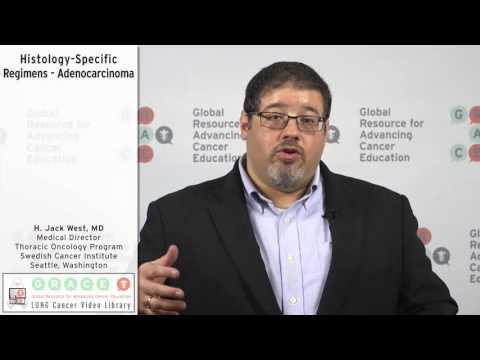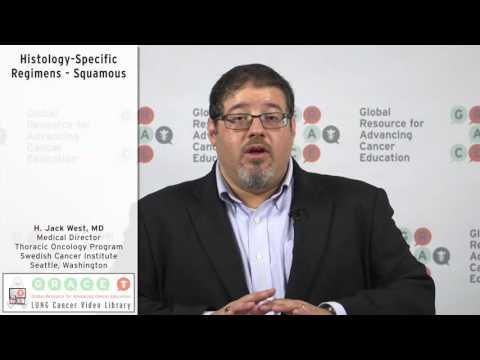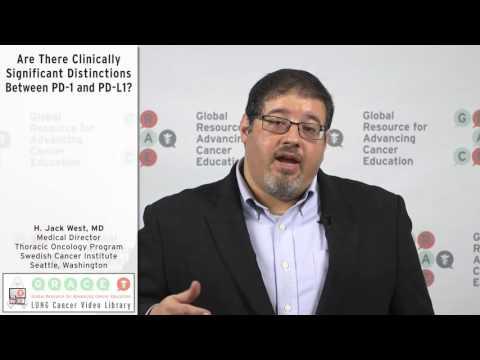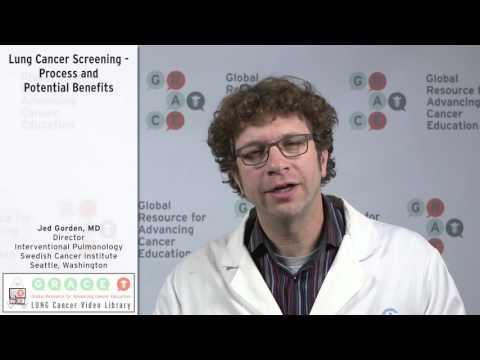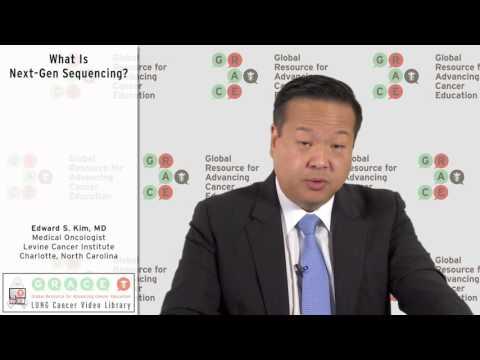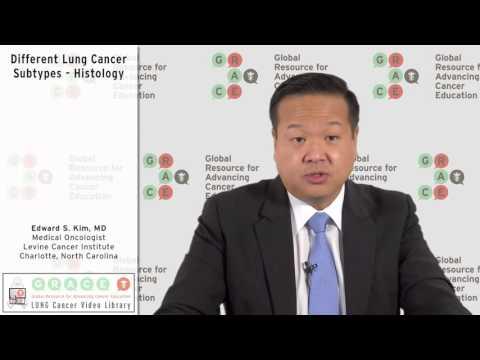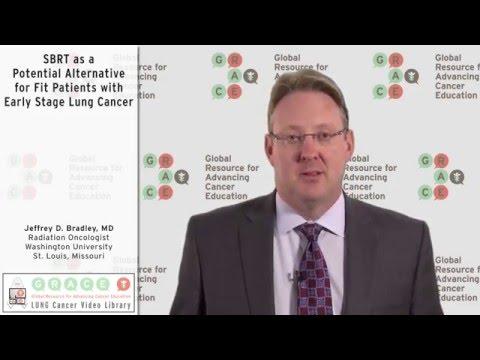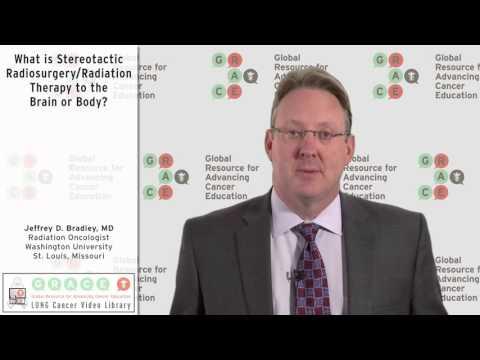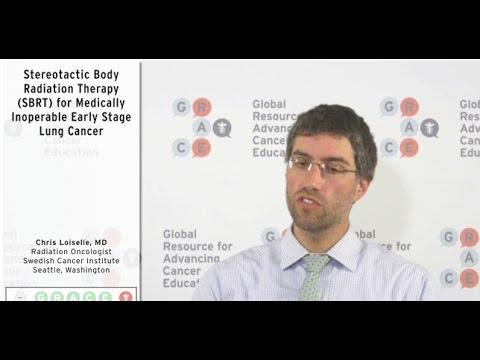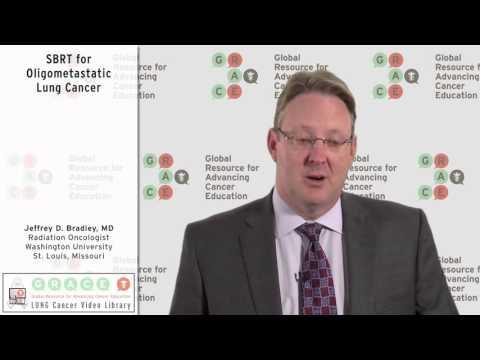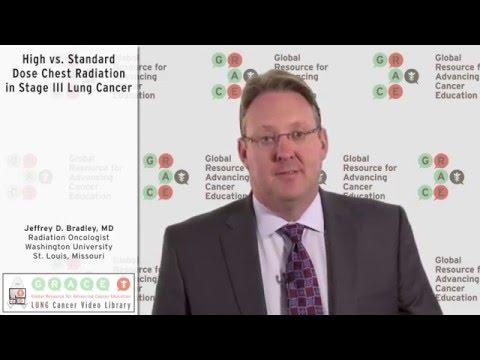Transcript One of the important points about patients with advanced lung cancer is that 30-40% of patients will develop bone metastases. I think it’s important to recognize this is not bone cancer, this is lung cancer that’s moved to the bone, and in 30-40% of patients at some point who have
Video Library
Search the Video Library
Video Language
Filter by Cancer Type:
Displaying Results 31 - 45 of 98
Dr. Ross Camidge, University of Colorado, addresses the question of whether to use a second generation ALK inhibitor as first line therapy or only after acquired resistance to crizotinib.
Dr. Jack West, Swedish Cancer Institute, addresses the issue of choosing a first-line chemotherapy regimen based on an adenocarcinoma histology.
Dr. Jack West, Swedish Cancer Institute, reviews the choices for a first-line chemotherapy regimen based on a squamous histology.
Dr. Jack West, Swedish Cancer Institute, compares the mechanism of action, efficacy and toxicity of PD-1 and PD-L1 inhibitors.
Dr. Jed Gorden, Swedish Cancer Institute, reviews the lung cancer screening process, including low-dose CT scanning, smoking cessation, follow-up testing and counseling, and describes the potential benefits.
UCLA Med Center's Dr. Eddie Garon discusses the open question of the optimal duration of ongoing treatment with immunotherapy for lung cancer.
Dr. Eddie Garon considers the data on immunotherapies for first line treatment of advanced NSCLC and whether we are likely to use these agents instead of or in combination with standard chemotherapy soon.
Dr. Ed Kim from the Levine Cancer Institute in Charlotte, NC summarizes the mechanism of next generation sequencing (NGS), how it can potentially be used, and its limitations in clinical practice today.
Dr. Edward S. Kim from the Levine Cancer Institute in Charlotte, NC defines the concept of cancer histology and gives examples of several lung cancer subtypes.
Dr. Jeffrey Bradley, Radiation Oncologist at Washington University in St. Louis, provides evidence for the use of stereotactic body radiation therapy as an alternative to surgery for operable early stage lung cancer.
Dr. Jeffrey Bradley, Radiation Oncologist at Washington University in St. Louis, describes the use of stereotactic radiosurgery and stereotactic radiation therapy.
Dr. Jeffrey Bradley, Radiation Oncologist at Washington University in St. Louis, describes the history and current use of stereotactic radiation therapy for inoperable lung lesions.Dr. Jeffrey Bradley, Radiation Oncologist at Washington University in St. Louis, describes the history and current use
Dr. Jeffrey Bradley, Radiation Oncologist at Washington University in St. Louis, defines oligometastatic lung cancer and describes the recent trend toward the use of stereotactic body radiation therapy to treat it.
Dr. Jeffrey Bradley, Radiation Oncologist at Washington University in St. Louis, provides trial evidence showing that patients may not benefit from high dose chest radiation therapy vs. standard dose therapy.

